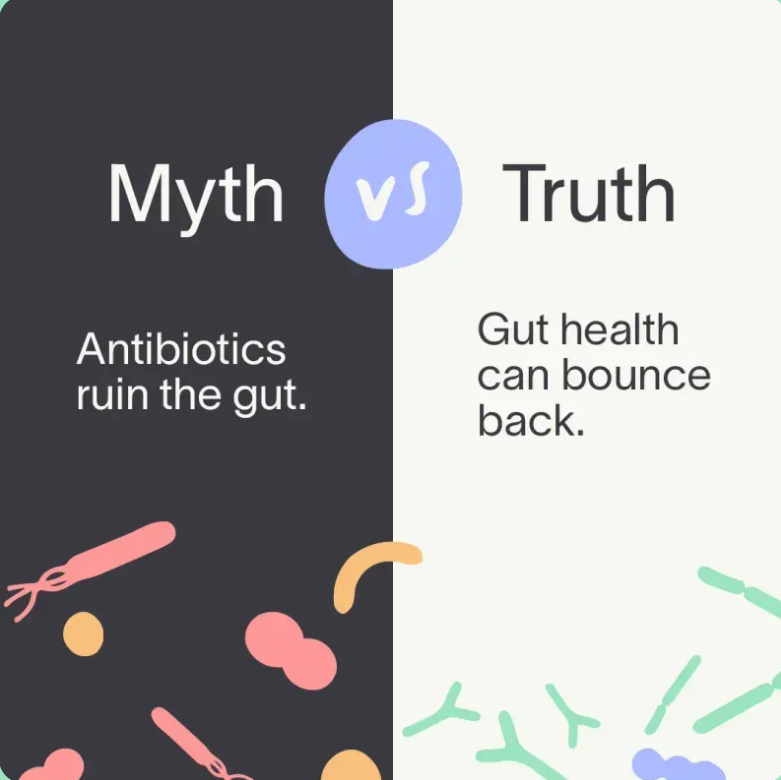
How to Restore Gut Health After Antibiotics
Antibiotics are a valuable tool in fighting bacterial infections, but they can also disrupt the delicate balance of the gut microbiome. While antibiotics eliminate harmful bacteria, they often reduce beneficial microbes as well, leaving the gut vulnerable to digestive issues and other imbalances. Fortunately, there are several ways to support your gut in recovering after a course of antibiotics. This article will provide actionable tips to help restore your gut health, with a focus on the role of probiotics in rebuilding a healthy microbiome.
1. Incorporate Probiotics into Your Routine
Probiotics are live microorganisms that provide numerous health benefits, particularly for gut health. They help replenish beneficial bacteria, reducing the risk of digestive discomfort and other issues linked to antibiotic use.
Probiotic Sources:
- Supplements: Clinical-grade probiotics such as Foerde f2M® Microbiota contain strains known to survive the digestive process and colonise the gut effectively.
- Fermented Foods: Try including yoghurt, kefir, sauerkraut, miso, and kimchi in your diet. These foods naturally contain beneficial bacteria.
For best results, take probiotics during and after your antibiotic course, as this can minimise the depletion of good bacteria and promote faster recovery.
2. Eat Prebiotic-Rich Foods
Prebiotics are non-digestible fibres that nourish the beneficial bacteria in your gut. They serve as “fuel” for probiotics, helping them grow and flourish. Including prebiotic foods in your diet is essential for long-term gut health.
Top Prebiotic Foods:
- Garlic
- Onions
- Asparagus
- Bananas
- Oats
When combined with probiotics, prebiotics create a synergistic effect, promoting a balanced and thriving gut ecosystem.
3. Diversify Your Diet
A diverse diet supports a diverse microbiome. After antibiotics, it’s important to eat a wide range of fruits, vegetables, whole grains, and legumes. Each type of food provides different nutrients and fibres that nourish specific bacteria strains in your gut.
Aim to include a rainbow of plant-based foods in your meals, as variety encourages microbial diversity, which is key to a resilient and healthy gut.
4. Stay Hydrated
Proper hydration supports digestion, nutrient absorption, and the maintenance of the gut lining. Drinking plenty of water helps keep your digestive system functioning smoothly, flushing out toxins and waste that can accumulate during or after antibiotic use.
Opt for water, herbal teas, and broths while limiting sugary drinks, alcohol, and caffeine, which may irritate your gut.
5. Consider Digestive Enzymes and Fibre Supplements
Digestive enzymes and fibre supplements can be beneficial when your digestive system is in recovery. Enzymes help break down food more efficiently, reducing the strain on your gut, while soluble fibre supplements (like psyllium husk) encourage regular bowel movements.
If you experience bloating or discomfort, consult with a healthcare provider to find the right digestive aids for you.
6. Get Plenty of Rest and Manage Stress
Your gut health is closely linked to your mental wellbeing. High stress levels can negatively impact the gut microbiome, reducing the diversity of beneficial bacteria.
Prioritise sleep, engage in relaxation activities, and practise mindfulness techniques to help your gut recover. Yoga, meditation, and deep breathing exercises can reduce stress, supporting both gut health and overall wellbeing.
7. Avoid Processed Foods and Excess Sugar
Highly processed foods and sugary products can feed harmful bacteria and hinder the recovery of your microbiome. Focus on whole, unprocessed foods to create an environment where beneficial bacteria can thrive.
Additionally, reducing artificial sweeteners and refined sugars can prevent further imbalances and inflammation in your gut.
8. Track Your Progress
Everyone’s microbiome is unique, and recovery can take time. Keep a symptom diary to track how your gut health improves over the weeks following antibiotic treatment. Note any changes in digestion, mood, and energy levels to understand what works best for you.
If you encounter persistent digestive issues, it may be helpful to consult with a healthcare professional to explore further options for recovery.
Conclusion
Recovering your gut health after antibiotics requires a combination of probiotics, prebiotics, healthy eating, and lifestyle changes. Supplements like Foerde f2M® Microbiota can offer targeted support, while prebiotic foods, hydration, and stress management play an essential role in rebuilding your microbiome.
Taking care of your gut after antibiotics isn’t just about restoring balance—it’s about building a foundation for long-term health and resilience. By following these practical steps, you’ll help your microbiome recover, ensuring that your gut remains healthy and functional well into the future.
